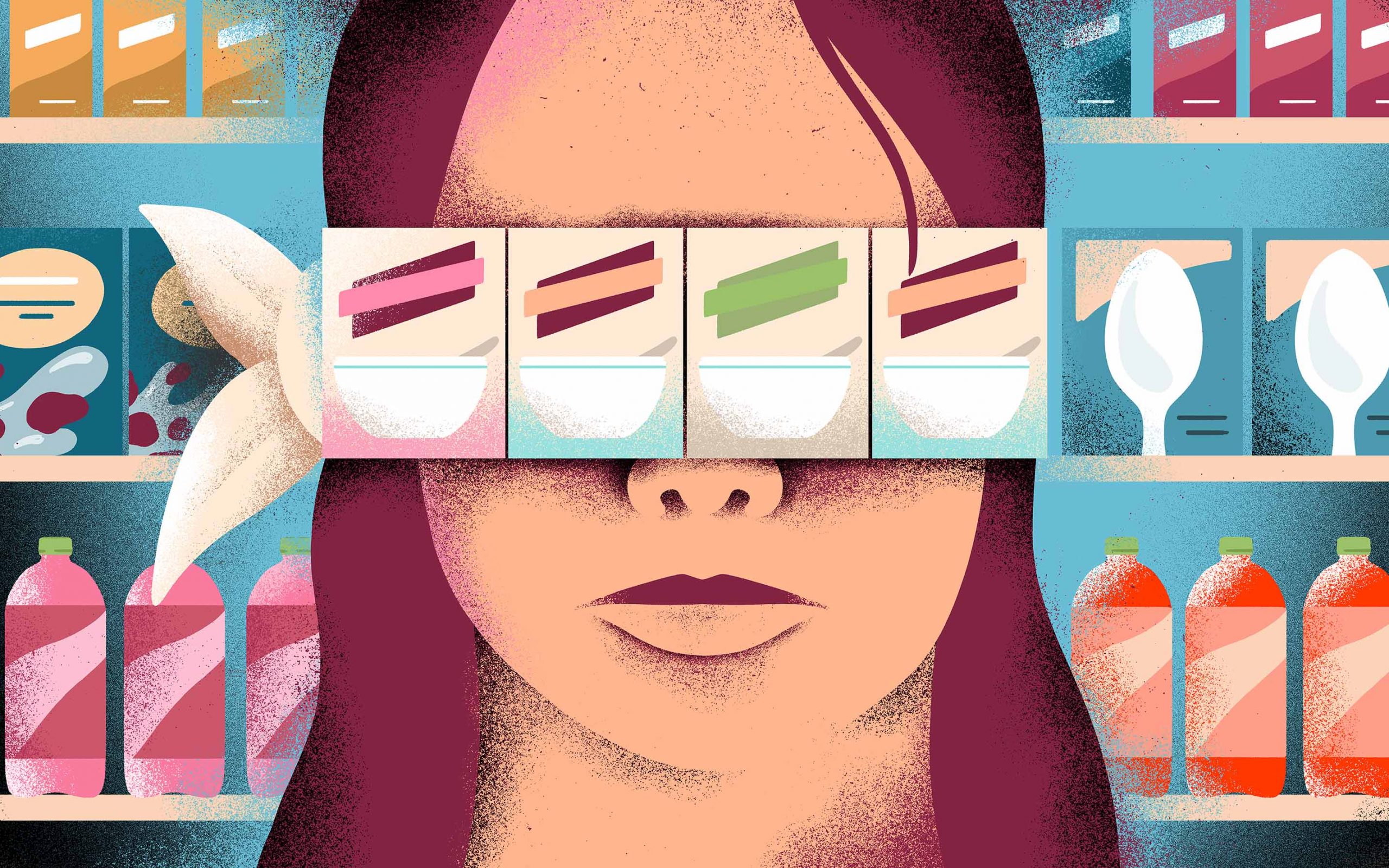New research suggests there are opportunities for marketers to encourage healthier shopping among warehouse store customers
The serious health consequences of unhealthy eating are widely known. According to a 2012 study published by the World Economic Forum, unhealthy diets account for approximately 63% of deaths worldwide. After years of warnings from researchers and medical professionals alike, policymakers around the world are seeking solutions—and food marketers are emerging as key players in reversing some of these troubling health trends.
A recent paper by Yu Ma, an Associate Professor of Marketing and Bensadoun Scholar at McGill University, and co-authors Kusum L. Ailawadi (Dartmouth College) and Dhruv Grewal (Babson College), identifies a “club store effect,” which they describe as a series of unintended health consequences of shopping at warehouse club stores. The paper goes on to recommend several “nudges” that club stores can implement that might help consumers make healthier choices when buying and consuming food at home.
“I love club stores—I think they are fantastic retailers and they offer very good quality products,” says Ma, describing his motivation for embarking on this study. “They sell these muffins that I really like, but I noticed that I struggle to finish the box before the expiration date—so I eat more of them than I normally would.”
Ma suspected that his behaviour wasn’t unusual. Maybe, he thought, the incentives to shop at warehouse stores (i.e. bulk packaging, lower prices in exchange for paying a membership fee) have an impact on the resultant dietary choices of consumers. The research team set out to conduct data analysis on the shopping habits of warehouse store members and non-members, and what they found was revealing.
Defining the “club store effect”
The researchers found that club store shoppers consume more packaged foods than those who don’t buy in bulk, a behaviour that holds significant implications for consumer health since packaged foods are typically higher in calories, fats, and sugars than fresh or perishable foods.
The availability of good deals on packaged food is part of what drives consumers to spend more in that category, in addition to factors like the sunk cost of membership (which compels consumers to spend more to make the cost of membership a worthwhile investment), and the sunk cost of increased travel time to and from club stores, which are typically located farther from residential areas.
“That mentality of, ‘I have to get my money’s worth if I’m spending this time and money on membership’ is a reasonable one, but in the end, you’ll just go there more often and buy more. That’s the kind of consumer behaviour I find fascinating,” says Ma.
Shoppers who join club stores often do so for the savings and for the time-saving opportunity to buy storable items in bulk. However, the researchers found that the money shoppers save at club stores is often spent on “impulse” purchases, most of which are “treats”—in other words, the savings translate into more unhealthy food purchases. Moreover, it appears that when consumers buy a higher volume of packaged food they eat it faster, rather than storing the food and consuming it at the same rate they would if they were shopping at a local grocery store.
A new approach to nudges for warehouse stores
Nudges, a concept that originated in the field of behavioural economics, are aspects of a set of options that subtly influence people’s behaviour in a particular direction without reducing their choices. Positioning healthy food at eye level is a nudge, but banning unhealthy foods is not. When thoughtfully designed and executed, nudges can have wide-ranging impacts on consumer behaviour.
The nudges outlined by Ma and his co-authors are designed to mitigate the “club store effect” while providing club store marketers with the advantage of emphasizing the healthy, sustainable orientation of their products.
For instance, data indicates that buying fresh fruit and vegetables in bulk is less convenient for many shoppers who worry that they won’t consume the larger quantities fast enough.
The team offers a few recommendations for nudges that club store marketers could employ to improve the diet quality of their customers’ shopping carts. For instance, data indicates that buying fresh fruit and vegetables in bulk is less convenient for many shoppers who worry that they won’t consume the larger quantities fast enough. One solution is to bundle a few different fresh produce items within the same packaging as a “variety pack,” which would enable households to get smaller amounts of several products while still enjoying the savings of buying in bulk. Another recommended nudge is to make packages of higher-sugar and higher-fat products slightly smaller, while slightly increasing the packaging of products with a healthy nutritional profile.
Plenty of incentive for marketers
Ma is confident that warehouse retailers will be open to adopting nudges like the ones they suggested. “Food marketers have to do something; the market is changing and people are demanding different things,” he says. “They have to adapt to sustain business growth. For warehouse stores, maybe their priority is price and quality right now, but soon it will have to move to health. I think it might take some time to get to the ideal state, but health, well-being, and sustainability are among the most popular buzzwords right now [in grocery marketing].”
In fact, Ma is already trying to implement some of these nudges himself. “Instead of muffins, I’ll buy a big box of salad; this forces me to eat more salad—or make healthier choices—before the item is past its expiration date!”














